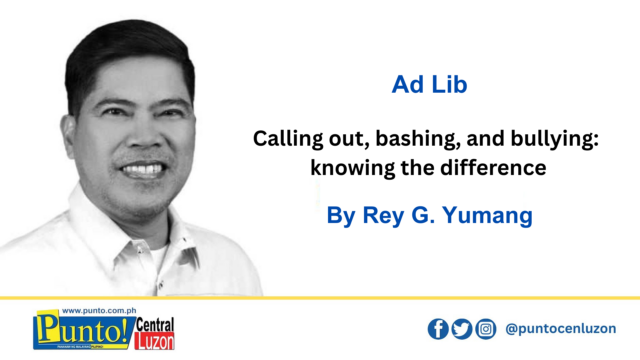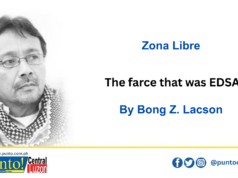JUST A timely reminder to public officials and their rabid supporters: when you choose to lead, you choose to be watched because public scrutiny goes with your chosen territory. Taking a solemn oath as a duly-elected leader means signing up for accountability and not for immunity.
So …
When citizens question your actions; that is not disrespect but democracy in action.
When an online post cites the Commission on Audit report showing P125M confidential funds spent in 11 days; that is calling out misuse of public money.
When constituents demand an explanation why a multi-million flood control project that is 90% complete on paper but only 20% done on the ground with less than two months before the agreed completion date; that is calling out a failure in governance.
When a resident asks local officials why they allocate a significant budget to basketball tournaments year after year but none for educational assistance for poor but deserving youth; that is calling out misplaced priorities.
Remember that people simply exercise their public duty when they demand transparency from their elected officials through verified facts and lawful criticism. That is not hate. If calling out is based on truth, data, and the desire to make governance better, it strengthens democracy rather than weakens it.
But everything changes when criticism becomes a circus of insults, slurs, ad hominem and memes detached from facts. It stops being civic vigilance and starts being bashing.
When citizens flood a local official’s page with “mapanako!” “durugista!” “babaero!” without even a shred of evidence, they trade reason for rage.
When critics mock a senator’s looks, accent, ethnicity or gender identity instead of debating policies, they confuse political participation with personal attacks.
When elected officials are bashed, not for their misconduct but for their humanity, social media simply becomes a dumping ground for unchecked hate.
When people mistake bashing for activism, truth becomes a collateral damage.
But things get worse when bullying enters the equation; it becomes a poison to society.
When officials and their families receive death threats, doxxing, or online harassment, the line of decency has already been crossed.
When paid trolls weaponize social media to attack critics, silence dissent, distort history and spread fake news, democracy suffers the most because the essence of civic government is lost completely.
When bullying replaces dialogue, it creates fear instead of reform.
When we call out wrongdoings, we demand good governance.
When we bash without facts, we breed hostility.
When we bully, we betray our own call for justice.
When we learn to hold leaders accountable with both courage and respect, we build solid pathways to nation-building.





